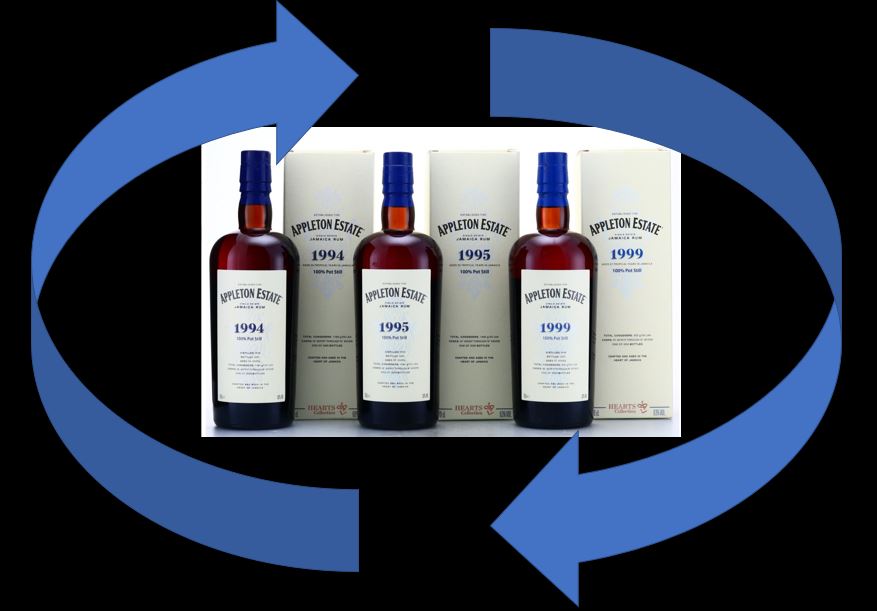
Flipping at is most basic is simply reselling, and mostly seen as akin to scalping tickets. A seller has a bottle of a rum which is sold out of the stores that a buyer wants , and a bargain is struck usually at a markup. It’s a sale. Its specificity arises because of the practice of buying a (usually newly released) rum alight with a buzz and hype: not to enjoy, but to resell at a profit – in other words, introducing yet another intermediary with sticky finger between the distillery of origin and the consumer.
Unsurprisingly, flippers have become a sort of personal pet hate of just about every rum aficionado who wants a bottle of the latest Appleton, Velier, Foursquare, Hot-Sh*t New Distillery or Awesome Estate, and can’t get any because it’s been sold out….only for it to turn up on an auction site or a private sales a week later at a massively inflated price. I remember the rage about the the Tryptich release a few years ago, and the way it disappeared from online stores minutes after being listed; bottles then appeared for sale on nascent auction sites and even on FB within just a few days…not for extortionate prices, precisely, but certainly higher than retail (Foursquare and Velier have been fighting this practice ever since, with varying degrees of success).
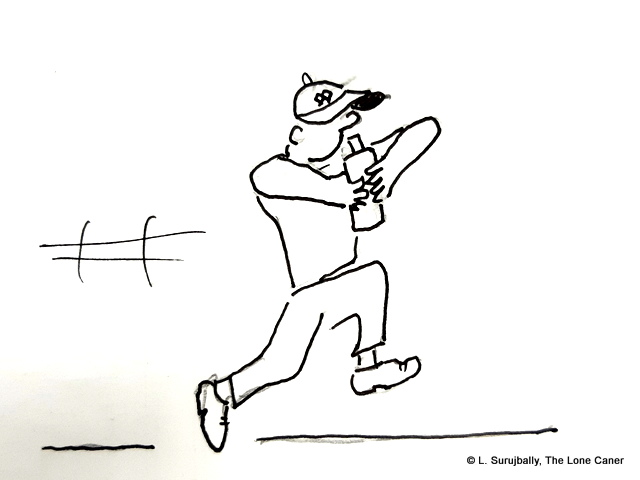 The practice continues unabated to this day, and is equally excoriated, as a recent angry FB post and its comments showed – and the general consensus is simply this: to see desired new bottlings turn up for sale on secondary markets and know this resale is why they were bought, instead of for drinking, is outrageous, defeats the efforts of all true rum lovers to get real rums and promote them, and frikkin’ annoying to boot.
The practice continues unabated to this day, and is equally excoriated, as a recent angry FB post and its comments showed – and the general consensus is simply this: to see desired new bottlings turn up for sale on secondary markets and know this resale is why they were bought, instead of for drinking, is outrageous, defeats the efforts of all true rum lovers to get real rums and promote them, and frikkin’ annoying to boot.
I completely understand the disappointed anger of those who missed out and now have to pay more. But really, I do wish people would just calm down about stuff like this. Folks are getting all bent out of shape for a product – a commodity, as one friend drily refers to it – that provides no benefit one can’t get elsewhere, that isn’t needed for survival, that is essentially a form of luxury item for which there are loads of substitutes, the sale and trade of which represents the foundation stone of capitalist world in which they live…and this causes a meltdown?
Let’s consider some other points and break the matter down for a second.
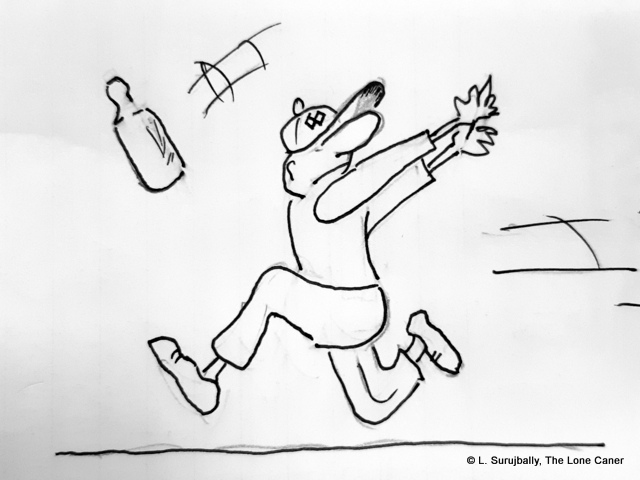 The prices are actually not always unreasonable when related to retail and whether they rise in price now or later, the fact is that most of the bottles that are most highly sought after are from favoured distilleries or companies which are always in limited supply; and so, once the initial hoopla and distribution and sales are over, the prices would have inevitably risen, whether through auctions, flipping or resale in some other fashion. Flippers just accelerate the process, though sometimes “sampling out” happens as well (I exclude this latter phenomenon for reasons explained in “Other Notes” below).
The prices are actually not always unreasonable when related to retail and whether they rise in price now or later, the fact is that most of the bottles that are most highly sought after are from favoured distilleries or companies which are always in limited supply; and so, once the initial hoopla and distribution and sales are over, the prices would have inevitably risen, whether through auctions, flipping or resale in some other fashion. Flippers just accelerate the process, though sometimes “sampling out” happens as well (I exclude this latter phenomenon for reasons explained in “Other Notes” below).
Moreover, not every single extra bottle is bought with a view for instant resale at a markup (though of course, it’s a big reason). Many people who collect always buy two or three bottles, one to open and share, the others to keep safe. Such storing (some call it hoarding) takes retail stocks off the market and that’s no more to your benefit than flipping is – because now, instead of their being at least some at a higher price there are none at any price. Then again, people resell bottles rapidly sometimes, because they just ain’t that good. I can think of a number of more recent rums from one indie or another that people bought with high hopes, then turned right around and sold again because they sure didn’t match the hype – and those prices were not high.
Fans and FOMO are also part of the issue here – they create the noise that enables the hype that stokes the legend that elevates the prices…deservedly or not. It’s a cruel irony (ignored and unacknowledged by most) that those doing the complaining are sometimes the same ones doing the pre-release hyping, and the complaints themselves serve to make the bottle(s) more desirable. It’s a no-win situation for everyone..
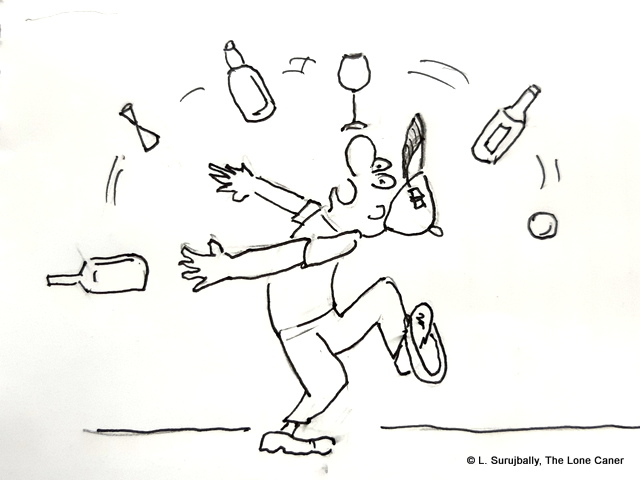 It will come as no surprise anyone following the rum news that Velier (including Hampden, Habitation Velier and the classic Caronis and Demeraras), Foursquare (especially the Private Casks and ECS series), Worthy Park, Rom Deluxe, Rum Artesenal, and any special edition series or collectible series (e.g. the Hamden “yellow box” and “Birds,” or Saint Lucia Distillery’s “Ships”) or three-deacade old Jamaican or uber-old Demerara rums by any independent, create loads of buzz…and much higher subsequent demand than any old rum made by some new company out there. And it’s not just limited to companies, but sometimes whole countries – Reunion, Jamaica, Grenada, Haiti and Barbados are current favourites. I can only imagine what the New Renegade rums are going to do when they start turning up. And that demand hikes prices on the secondary market.
It will come as no surprise anyone following the rum news that Velier (including Hampden, Habitation Velier and the classic Caronis and Demeraras), Foursquare (especially the Private Casks and ECS series), Worthy Park, Rom Deluxe, Rum Artesenal, and any special edition series or collectible series (e.g. the Hamden “yellow box” and “Birds,” or Saint Lucia Distillery’s “Ships”) or three-deacade old Jamaican or uber-old Demerara rums by any independent, create loads of buzz…and much higher subsequent demand than any old rum made by some new company out there. And it’s not just limited to companies, but sometimes whole countries – Reunion, Jamaica, Grenada, Haiti and Barbados are current favourites. I can only imagine what the New Renegade rums are going to do when they start turning up. And that demand hikes prices on the secondary market.
What flippers are doing is acting as speculators who see the divergence between hype and knowledge, and real value, and jump into the breach. When Luca Gargano, in his book “Nomad Among the Barrels”, referred to the Veliermania and Caronimania in the pre 2012 days, he correctly noted that his initial bottlings sold very slowly because nobody knew what they were – and the initial round of collectors in Italy and France and then Europe became the first rum flippers (I bought the Skeldon 1973 from one of them). The point is, fan-love and online promotion helps drive some of this and one of the reasons it continues is because every one of those fans who buys a couple bottles of the latest new creation and crows about it is helping increase its secondary market value. They would do better to be more cautious with their automatic praises when a Name releases anything, but I don’t see that happening any time soon.
Maybe we need to step back and rethink what we buy, and use less emotion to steer our purchases. The bubble of enthusiasm about favoured bottles and their makers is fine, but I do believe it excessive at times – and it enables flippers’ margins, not our own satisfaction. In any case, why not spread the rum purchasing wings a little? The world is not made up of the four or five brands most commonly complained about – there’s tons more out there. New stuff, old stuff, dependable stuff, cheaper stuff, that just doesn’t have the eldritch lustre and glow of a Magic Name.
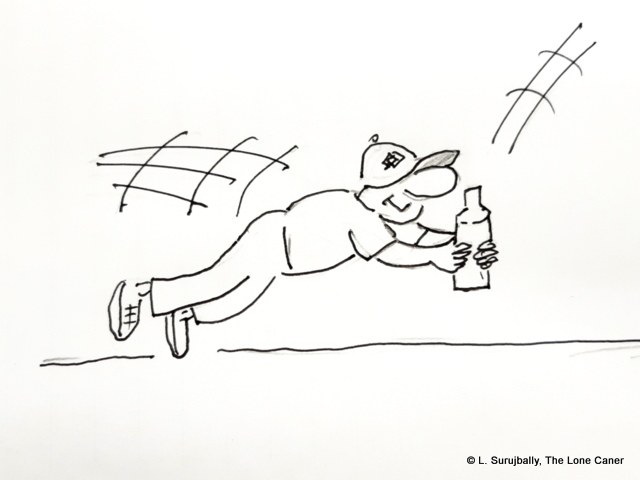 Too often we buy unthinkingly – to be “in”, to round out the collection, to have the latest, the newest, the best (they’ve been selling us phones, cars and computers on that basis for decades). But rum junkies and rum lovers could (and should) check out other brands and countries and worry less about what other fans think of them, or how cool they look with the latest Appleton Hearts bottles on the table hogging the Instagram feed or driving hits to the First Review. Because that just leads to a sort of “me first” and “look what I got that you don’t” that is the reason behind far too many of these proud posts — they’re left for you to admire but not taste, and so what really is the point of getting the bottle aside from bragging rights? The only people really profiting is those who exploit the margins this attitude creates, the resellers.
Too often we buy unthinkingly – to be “in”, to round out the collection, to have the latest, the newest, the best (they’ve been selling us phones, cars and computers on that basis for decades). But rum junkies and rum lovers could (and should) check out other brands and countries and worry less about what other fans think of them, or how cool they look with the latest Appleton Hearts bottles on the table hogging the Instagram feed or driving hits to the First Review. Because that just leads to a sort of “me first” and “look what I got that you don’t” that is the reason behind far too many of these proud posts — they’re left for you to admire but not taste, and so what really is the point of getting the bottle aside from bragging rights? The only people really profiting is those who exploit the margins this attitude creates, the resellers.
I completely get and accept that flippers are an element of the commercial rum ecosystem, not substantially different from those people who stockpiled masks and other medical or consumer supplies in the USA (and probably elsewhere) and then coldly resold at appalling markups in a time of pandemic. I despise them all for their lack of empathy for those poor souls who weren’t as quick off the block, who didn’t have their resources, and who such buyers basically shaft in their desire to make a buck for themselves. But all this wailing and gnashing of teeth won’t help anything, and it certainly won’t stop anything. No method of restriction of rum sales can stop people from buying multiple bottles, and then reselling them. Not direct distillery-selling to individuals, not single-bottle sales, not selling by lottery, not knowing everyone’s first name, marking bottles, numbering bottles, sealing bottles, nothing. It’s a fact of life. We have to get used to it.
In any case, people can and will and should be able to buy what they can and want if they can afford it, and resell if that’s their desire (in that sense we’re all Flippers-In-Waiting and points to the complexity of the issue – we don’t like Flippers when it’s other people, but we’re okay when it’s us). That you and I don’t like the practice is completely irrelevant. The only value on resale such a product possesses is the value we ourselves place on it by choosing to bid and buy. So, we can occasionally choose to walk away and not buy, and remember that it’s not a life-ending decision and our existence is not predicated on, nor the worth of our lives judged by, somehow missing out on this elixir. All it means is we can’t boast about having it and our social media won’t show it and no, we won’t be able to show it off to our rum club. What we will have, is more money to spend on other things, maybe even the Next Thing, and come on, tell me honestly, is any of that really so bad?
Other Notes: “Sampling Out”
Originally I had a section on the practice of “sampling out” – buying a bottle to subdivide and sell 3cl or 5cl samples to others – I had thought that the prices when all samples’ prices summed up and averaged, are statistically higher per cl than an auction-flipped bottle and so represented another form of flipping. But I needed proof, as a “feeling” was not enough.
I contacted some acquaintances of mine who indulged in this practice (as either buyers or sellers or both), and this and other online research showed the assumption to be inconsistent at best. Checking around for prices of samples on FB versus retail on European sites showed that it was as likely to be higher as lower and in fact, of late the trend has been one of negligible markups.
This was not entirely a surprise. People sample out for several reasons: to recoup the price of an expensive bottle; to share but not incur yet more costs; to make space in the cabinet; to reduce a bunch of heels taking up space or to which the SO objects (these are real reasons!); to get cash for the next halo bottle they really want; to get rid of a bottle that has some value – say, because it’s very old – but which they themselves don’t like or which isn’t real famous. Such sellers tend to be more altruistic and sell at small margins or at cost plus postage. So not really a flipping scenario at all.
Then there are those who get a hot bottle and sell samples at a hefty markup. It’s better for those with slim purses who’ll never get the whole thing and could not afford it anyway and the small size of the bottle and its relatively more affordable cost makes it attractive. It’s flipping in all but name, though.
Some good back and forth on the subject took place on the Scandinavian Rum Academy on FB for those who are interested in others’ points of view.
Well said. People definitely get sucked in by the hype. I’ve been richly rewarded buying rums from little distilleries here in Oz rather than chasing after the latest offering handed down from the Mount by Foursquare et al.
If I was there, that’s exactly what I would be doing. Unmined territory you lot have down there, so why not take advantage, right?
Interesting article Lance which raises some good points. One question I have – say you are invited to a special tasting session or, in the current climate, have been sent pre-release rum samples from one of the ‘rum legends’ Luca, Richard, Joy etc to partake for example in a tasting Zoom session, is there not a lot of peer pressure and bias placed upon yourself to say you love the rum, even though deep down you think it maybe not as spectacular as their previous releases? Do you think this can affect the hype and lead to more flippers trying to get hold of these bottles.
One example could be the recent Appleton Hearts Collection which following the aftermath of the initial hoovered up release have left some rum enthusiasts thinking they weren’t worth the normal RRP let alone the flipper price. Many of the ‘chosen few’ who get sent these types of invitations are often well regarded in the rum community and therefore have a big following. I’m just wondering whether thoughts and reviews can get skewed. I would be interested to get your thoughts on this.
This has less to do with flipping than with ethics and I think it’s a tough question for any reviewer to face up to and be honest about (few do). Each has to come to a personal decision regarding the matter. Obviously the all-or-none approach is not to accept such invites or such samples, but that’s not going to happen. Alternatively, take the samples but do not participate. Yeah sure. Reviewers are human and being part of the cool kids club with legends like Luca or Richard or Joy is incredibly hard to resist, let alone accepting their largesse and then dissing it…it’s like going to Christmas dinner with your Mom and realizing the food is crap – are _you_ going to be the one to tell her, in her own house? And I am convinced that nobody is free from bias or insidious pressure under such circumstances.
Coiling beneath your question is the unspoken one: what would I do? Short answer – if it’s too difficult to refuse, then pay back in kind. By that I mean, give back something of equal value that evens the scales. Money, samples of your own, a job done for free that does not involve opinion shaping or reviewing. I have been offered samples many times by distributors or producers or owners. After a decade of writing in the rum field, I know many of them by name and face. I tell all of them the same thing: don’t, unless I can pay you back in some way. I’m pretty successful in this regard but whether I am or not, I note my sourcing in the reviews when it happens, not for my benefit so much, but for that of the readers, who deserve to know if there is a potential conflict of interest.
This is a huge topic, Gi, and worthy of an editorial of its own. The two paragraphs above are some of my thoughts on the matter.
thanks for your very honest and detailed response. I always find your reviews and general articles about rum to be very insightful and humorous. You played a big part especially at the start of my rum journey so I thank you for that. Flipping is a very contentious subject to tackle and provokes a very emotive response from some.
I get both sides – for some it’s a job which helps put food down on the table, the other is the uncontrollable distain some people feel that are somehow losing out to someone trying to make a quick buck. Personally am more worried about not having the same access to rum post Brexit living in the UK but that’s a different matter completely! Keep up all the great reviews and articles.